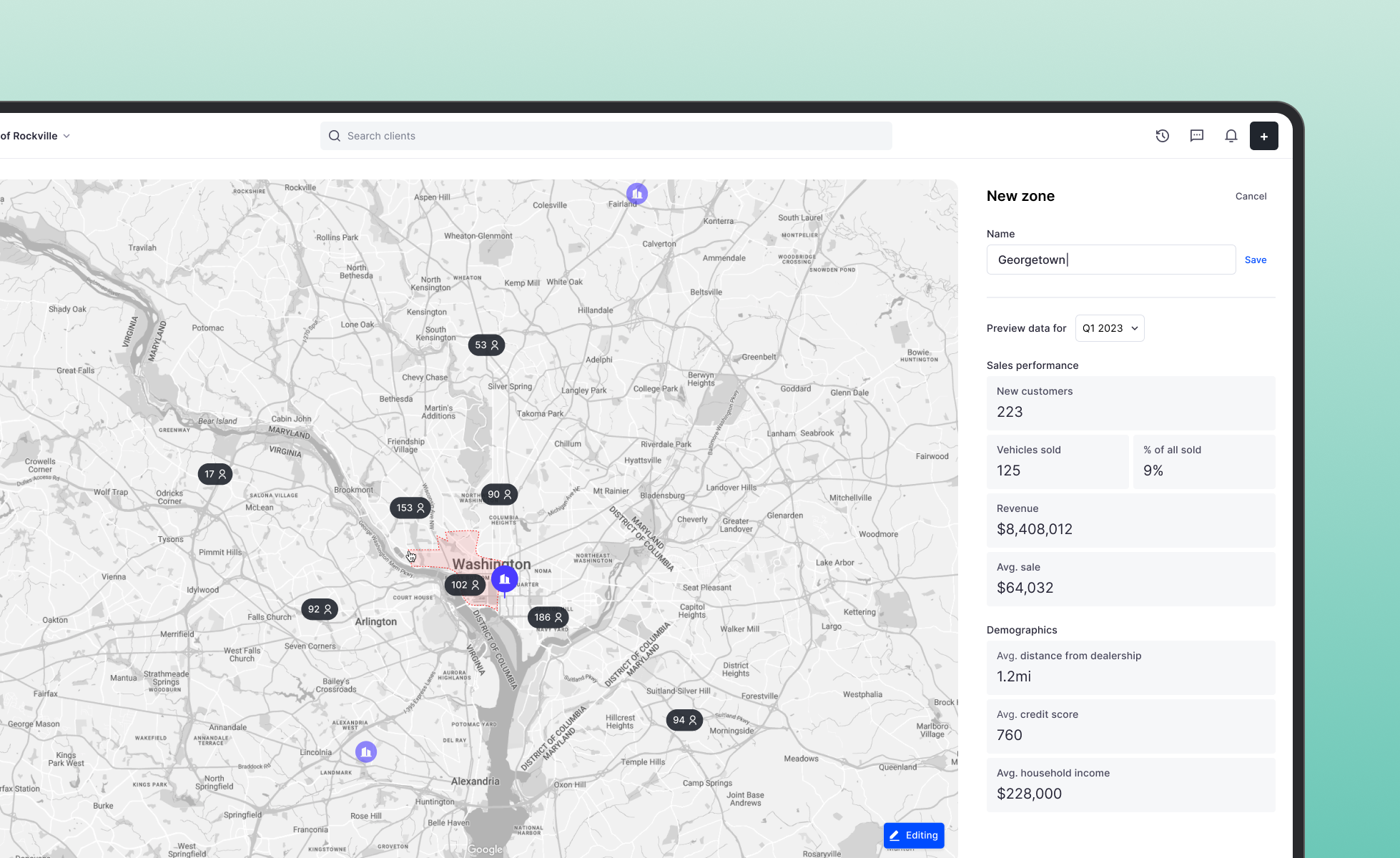Gubagoo CRM
Building the next-gen CRM for car dealers
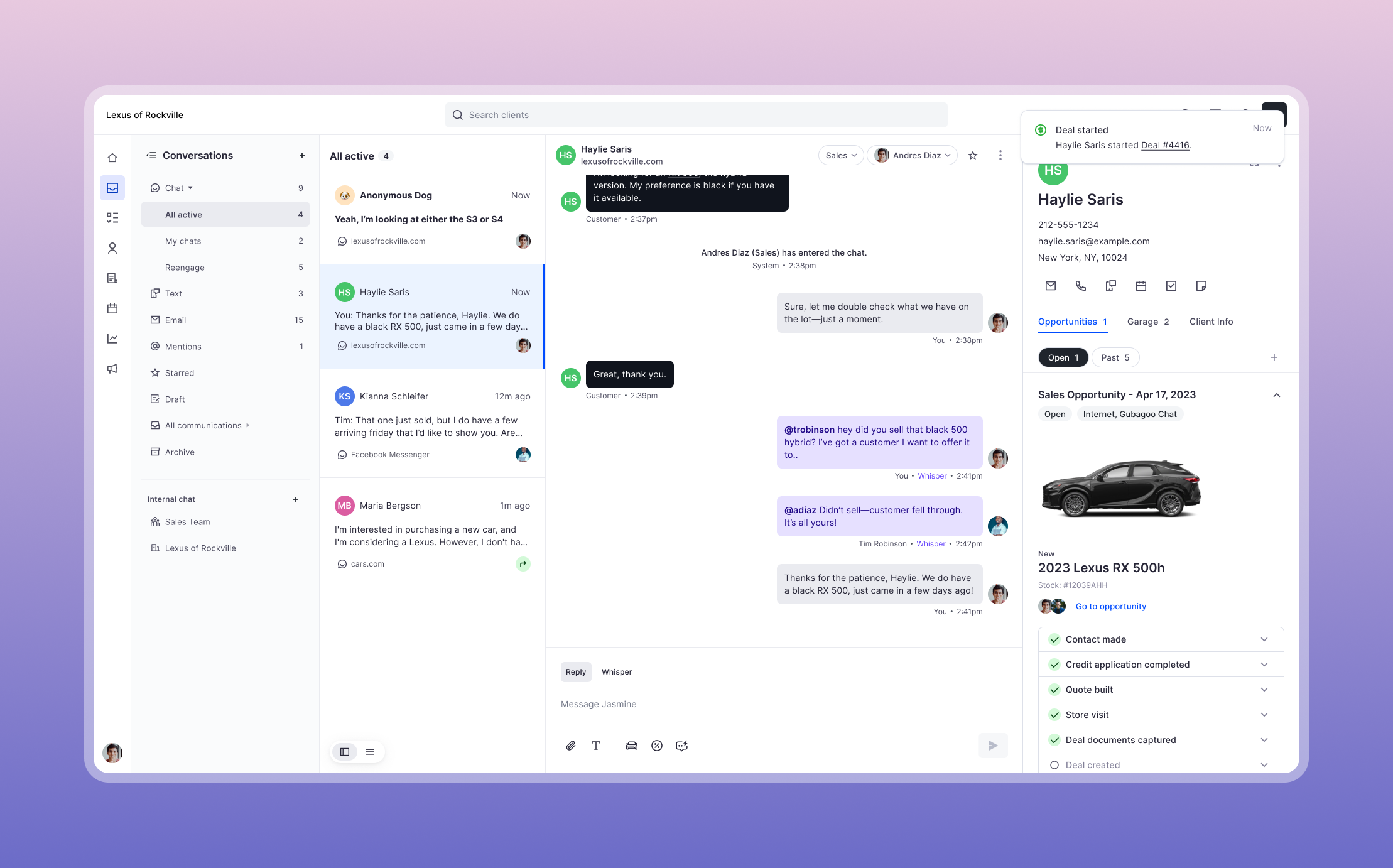
background
Competition is growing in the car-dealer-tech space.
Since the 1960s, Reynold’s has been a leader in car dealer tech, but by 2023 they were feeling pressure from competitive new startups in the space.
I led design for this project to redesign the automotive CRM and reposition it as a truly dealer-focused tool.
This project is a work in progress and parts have been omitted or obfuscated for confidentiality.
problem
Reynold’s current application was losing users to competitors with significant complaints regarding its UX.
Declining sales and retention coupled with dealer complaints created an urgent need for Reynold’s to start building a better CRM.
- Users struggled with navigation
- Encountered complicated workflows
- Found the interface outdated
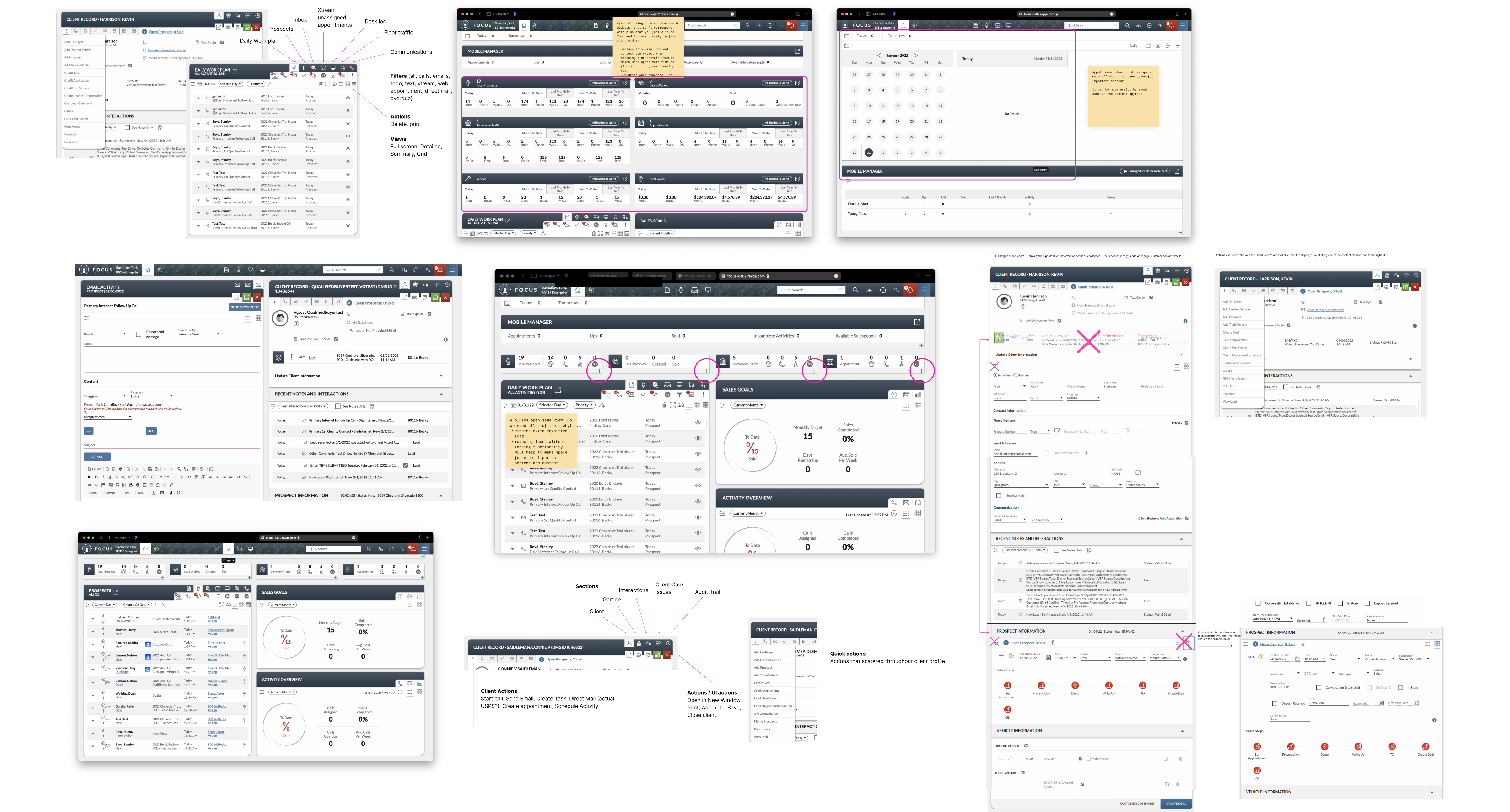
Goal
Create the best-in-class CRM for car dealers that will:
- win and retain more business
- increase app usage
- increase user satisfaction
The current phase aims to create a desktop MVP for testing with strategic partners and refining a go-to-market product based on feedback.
Discovery
Reframing legacy features
During discovery sessions, PMs presented a list of “must have features”, many of which were based on the old app.
To ensure I wasn’t haphazardly carrying over old assumptions, I reframed the requested features with user stories and “how-might-we” questions to reveal the underlying user needs so I could approach them with fresh thinking.
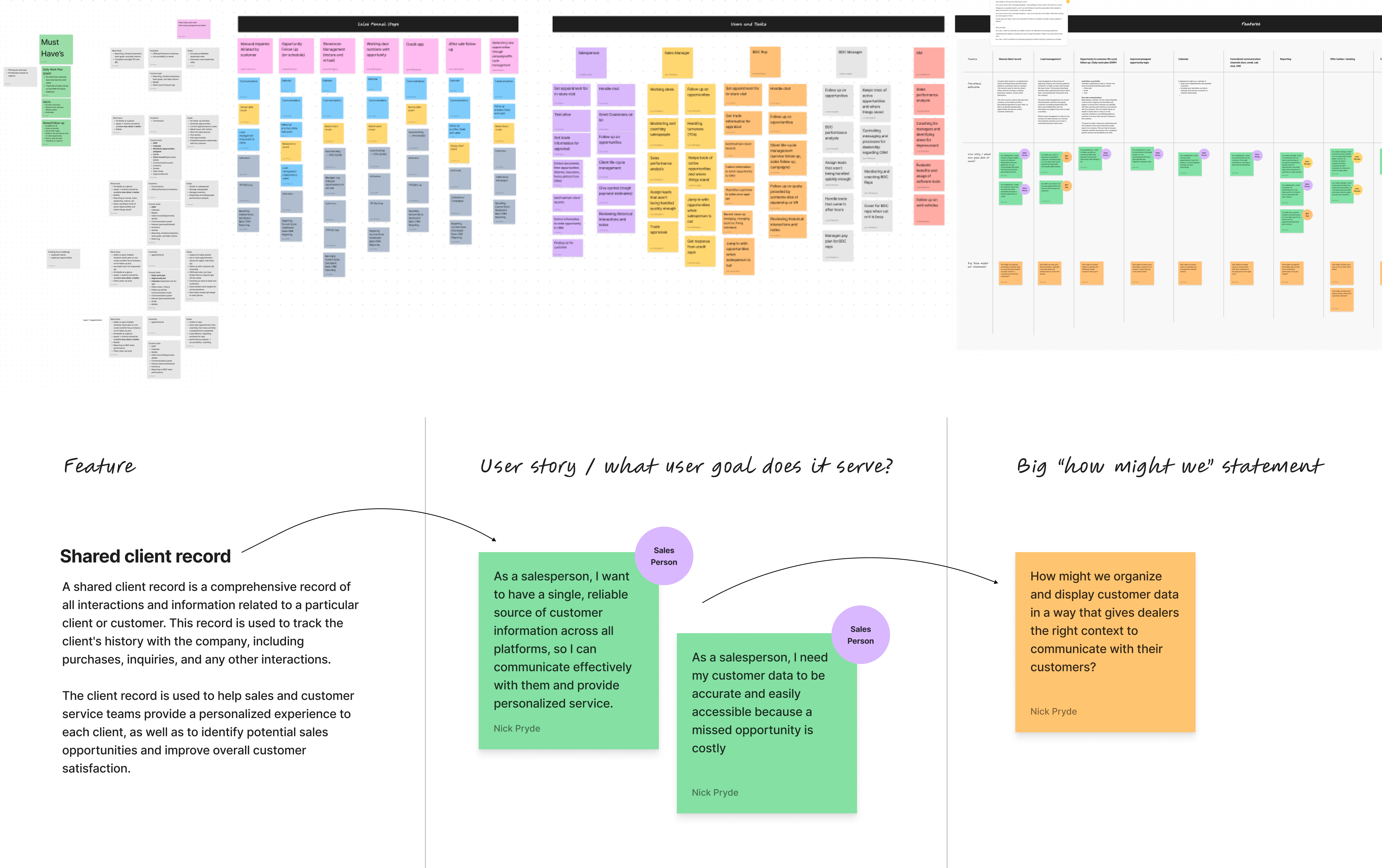
Process and solutions
A new architecture with distinct workspaces
Now that I understood the types of work dealers needed to do, I needed to build a new structure to house them. Research showed that the current “everything in one view” format caused significant confusion. It made the platform feel unpredictable and required users to reorient themselves constantly.
My new information architecture gives users distinct workspaces purpose-built for each area of work. With improved navigation and some logical global features like conversations, notifications, and search, everything they need should still feel within reach.
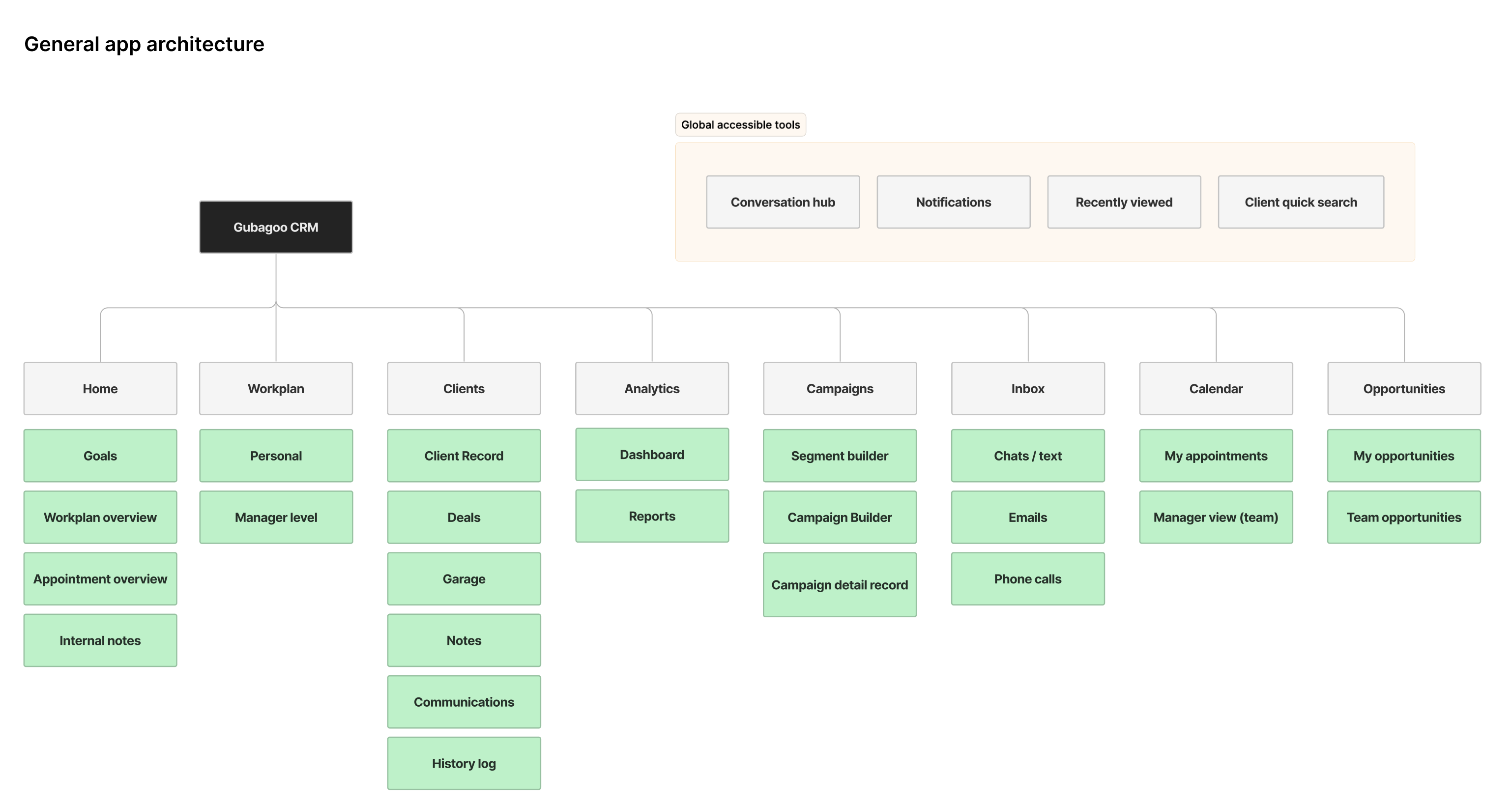
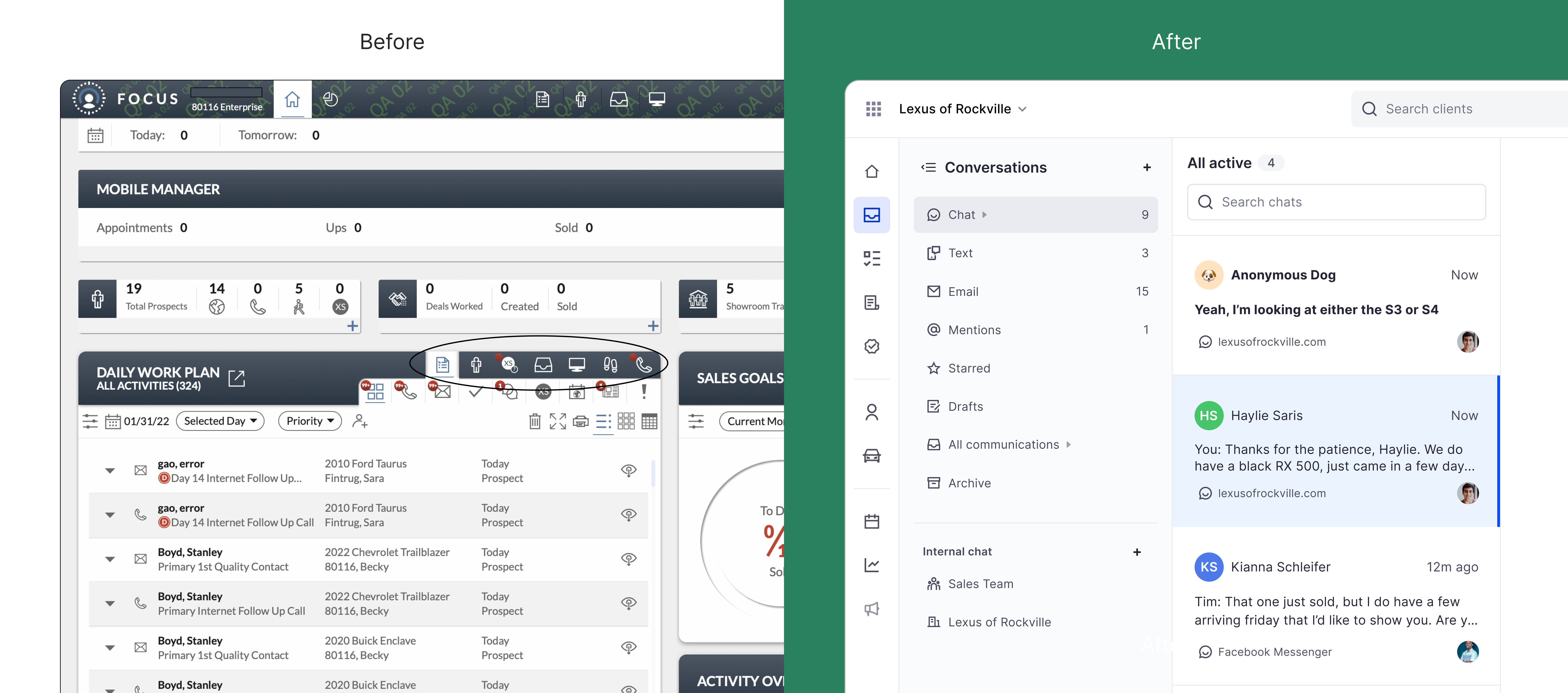
Before, primary navigation was nested inside of a panel on the screen and was displayed alongside an action menu, confusing users and causing frequent accidental clicks.
I replaced this with a simple sidenav, so users have a clear area to navigate through the app.
Making follow-ups quick and efficient
Dealership teams spend a significant part of their day on follow-ups, making it vital to give them the right context to complete tasks without disrupting flow.
The main challenge here is presenting the right amount of context, enabling users to efficiently complete tasks without needing to constantly reorient themselves.
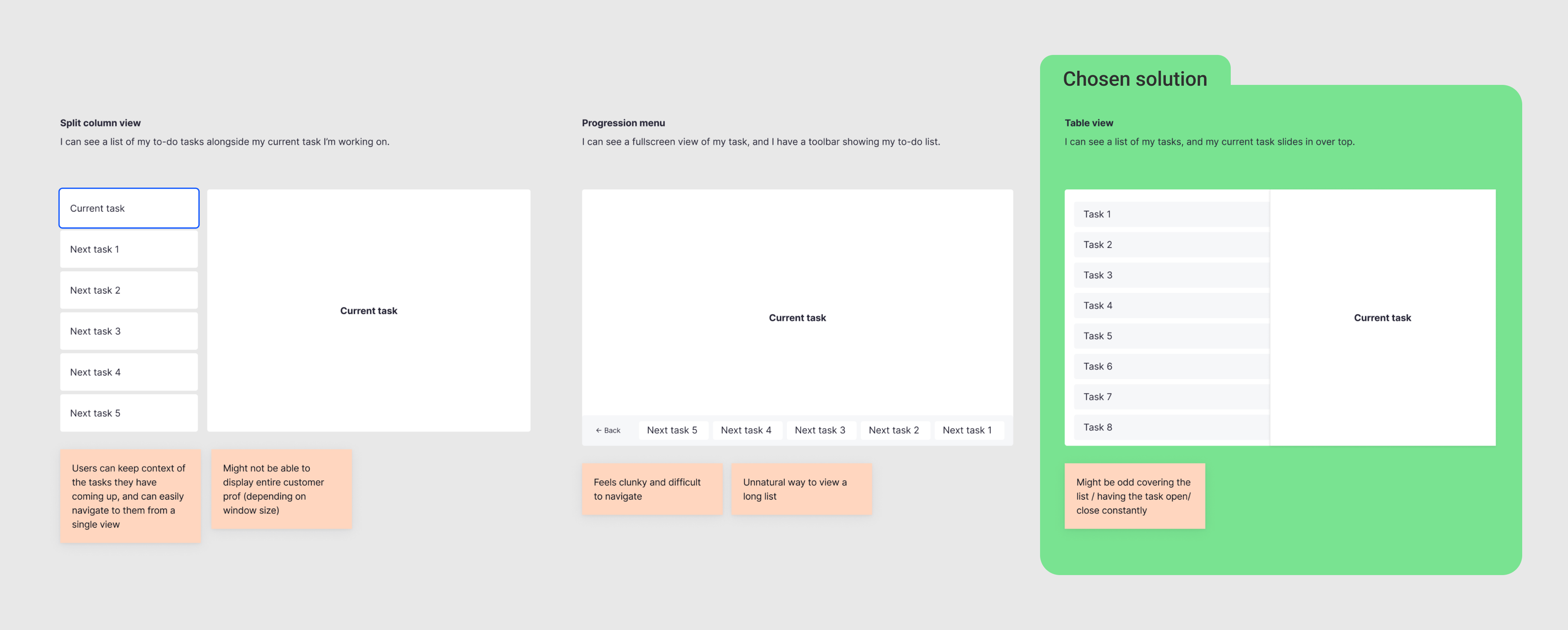
After exploring a few directions, feedback revealed that dealers would need to see more context for each task and wanted to view more list items at once. Sales staff also need greater flexibility in their workflow, so the limited-focus views would have limited their ability to monitor chats and task-switch.
A data table view of activities provides dealers plenty of context before starting an activity so they can quickly gauge upcoming tasks.
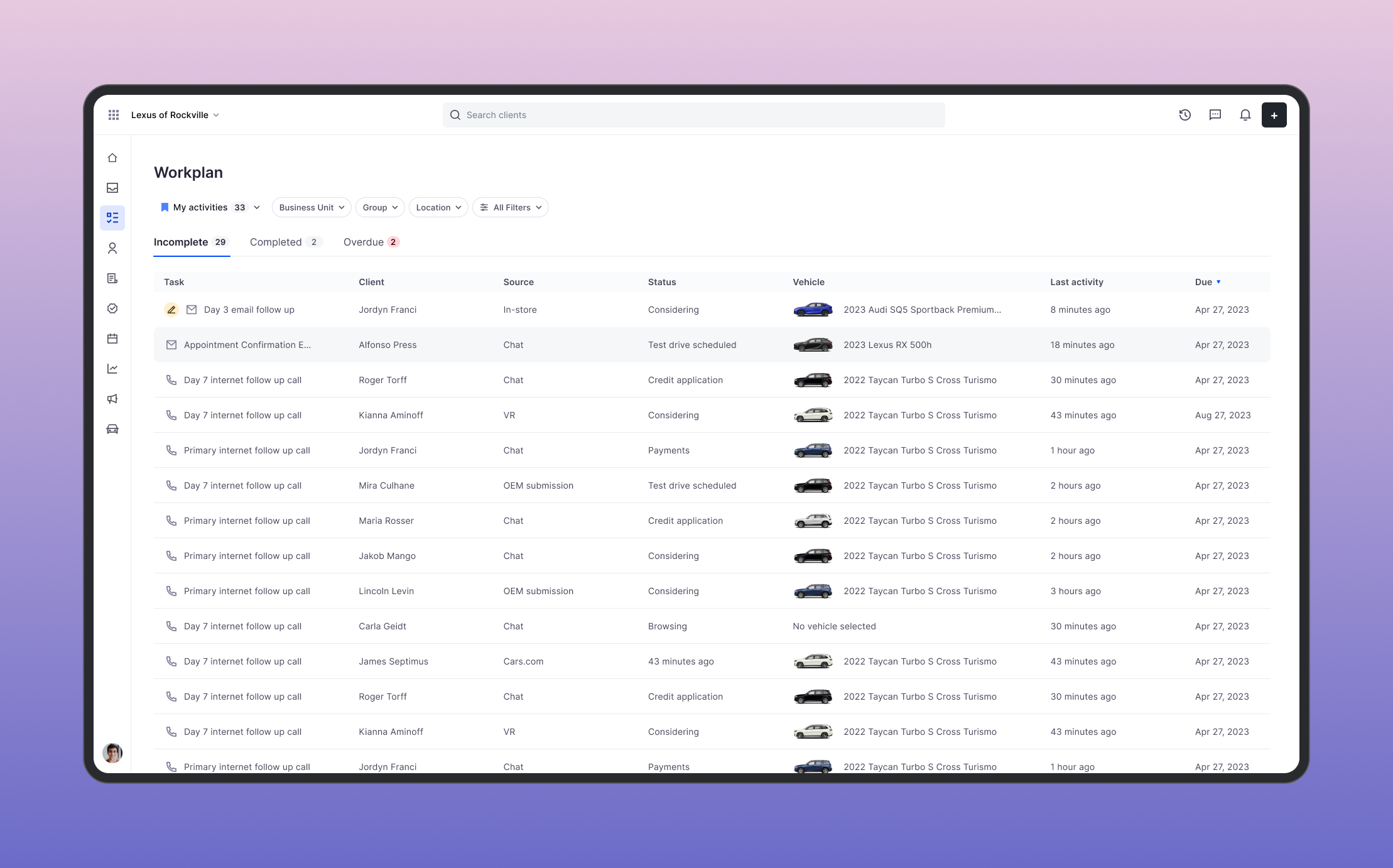
The activity sheet is designed to display essential information and actions prominently, with additional context below. A client summary displays alongside, providing details about the client and their current opportunity, which is vital context when working on a a follow-up activity.
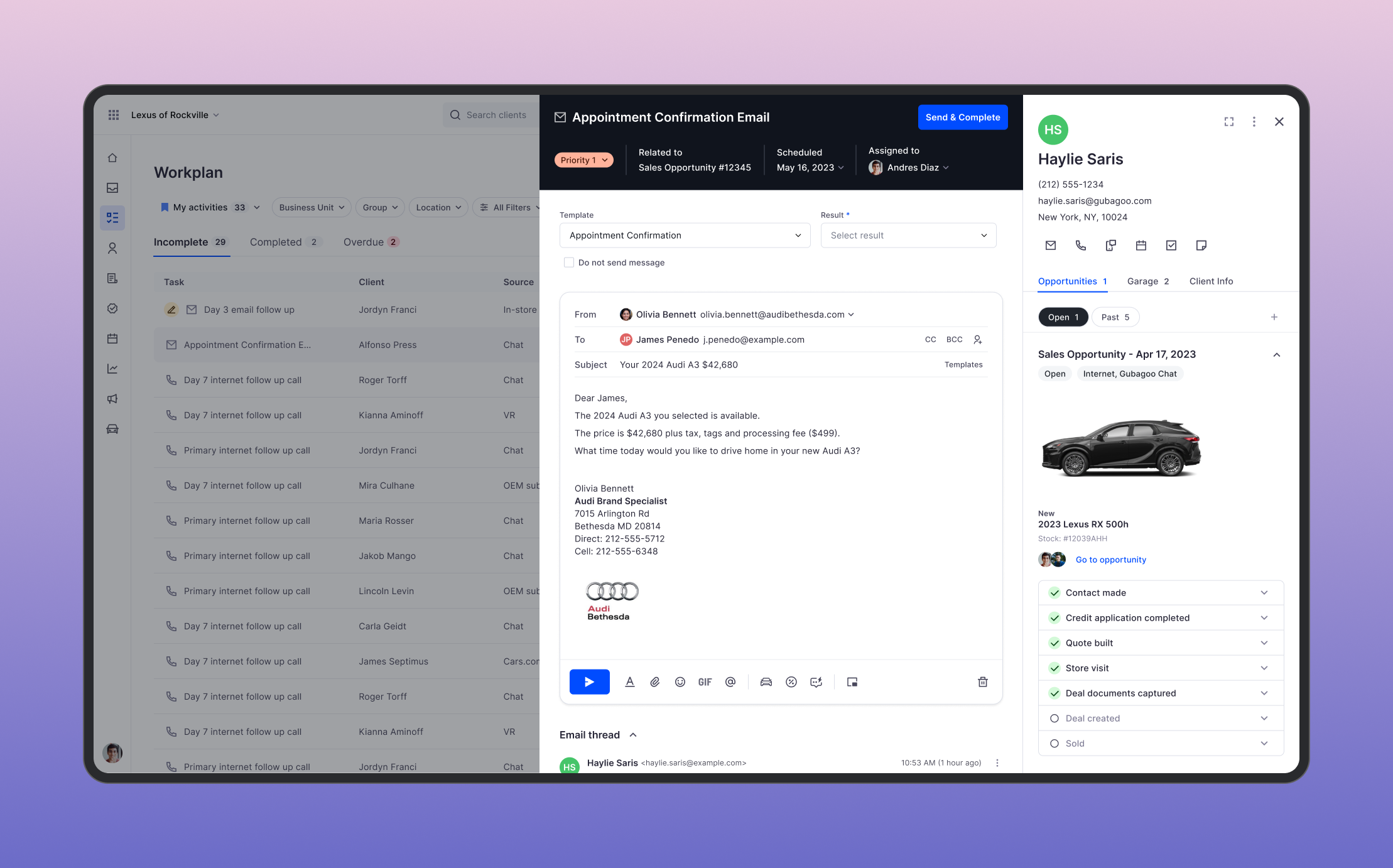
Intuitive communication
The success of my team’s chat platform (Glive) at Gubagoo was a significant role in our acquisition by Reynold's. With existing plans to incorporate text and email support, we had a solid foundation for the inbox.
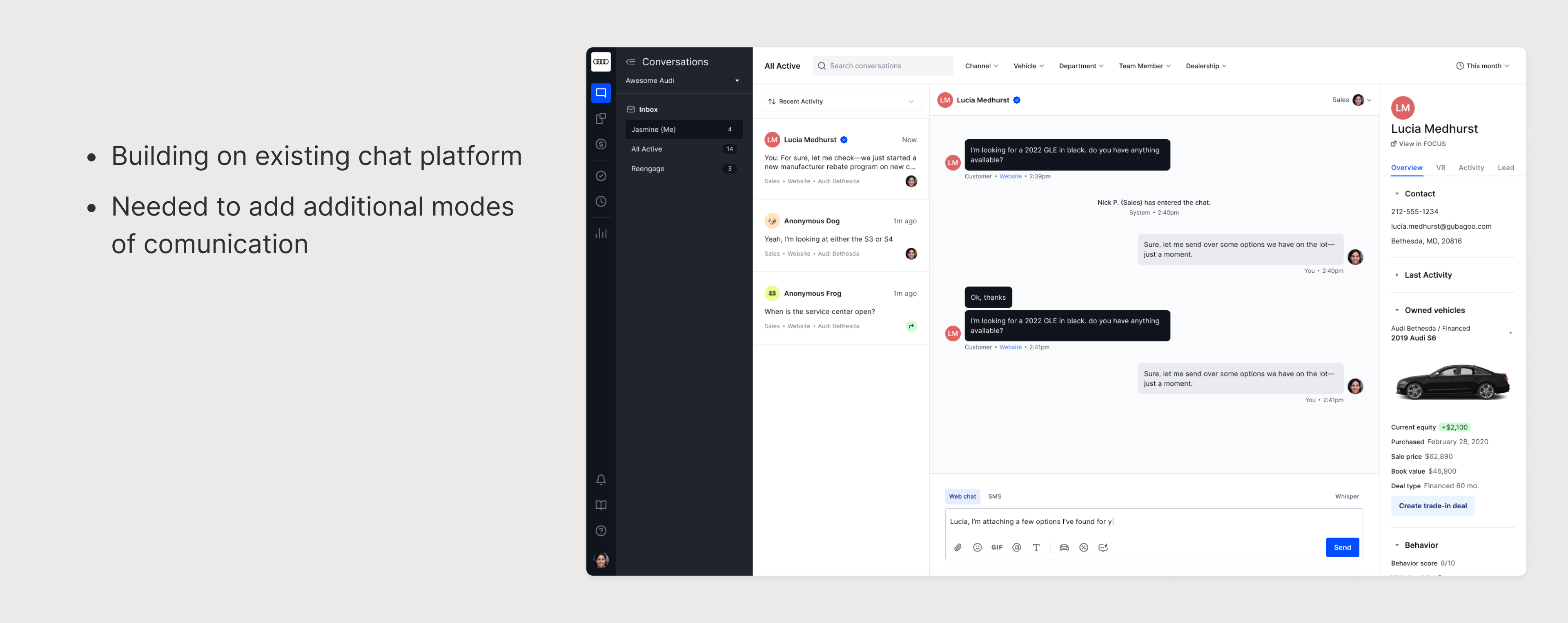
The challenge was smoothly integrating all the other modes of communication in this view, as they all had different logic.
I addressed this by expanding on our existing folder system—with each communication channel separated, a folder for everything, and folders for special states like draft, starred, mentions, and archived.
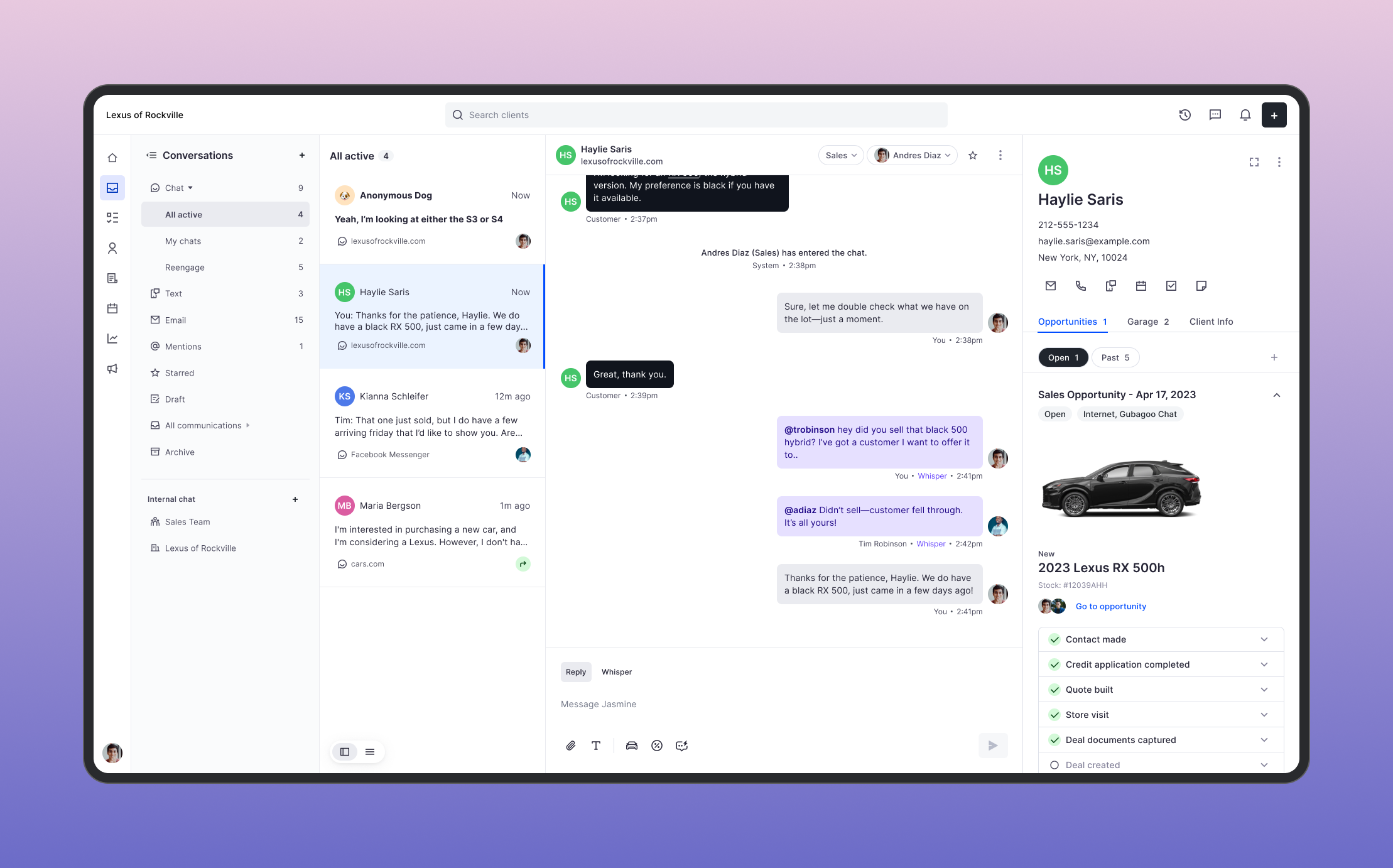
Leveraging mental models
Because most people use personal email daily, I also wanted our email experience to take advantage of those familiar mental models.
Adopting these existing conventions should help make emailing in the CRM feel natural and intuitive.
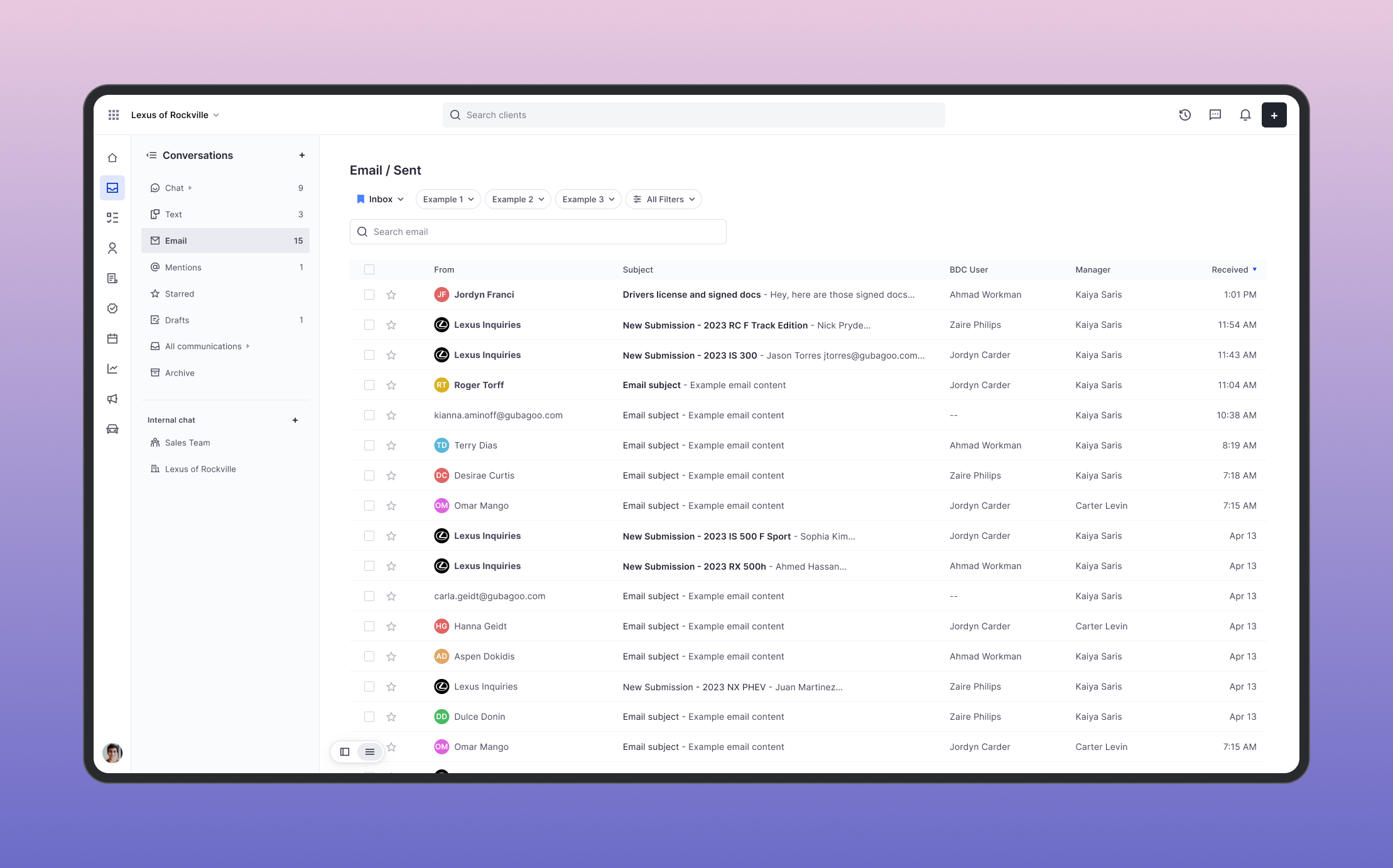
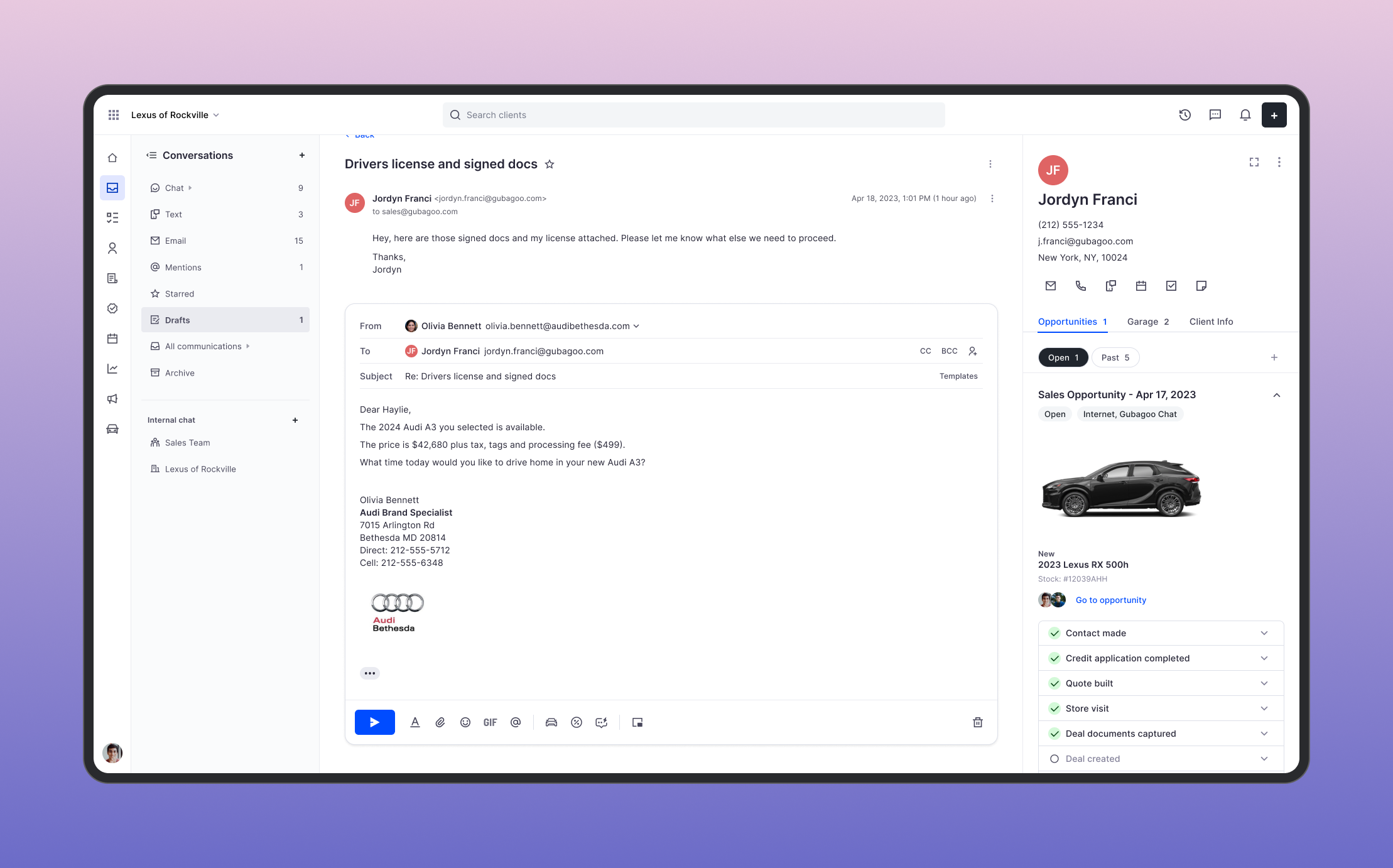
Access client records from anywhere
No more losing your place or breaking workflow to access a client record. Users need to reference client info constantly, so I created a client sheet that is space-efficient without compromising data-fidelity. Anything you can find on the full-screen view is now accessible in this slide-over sheet.
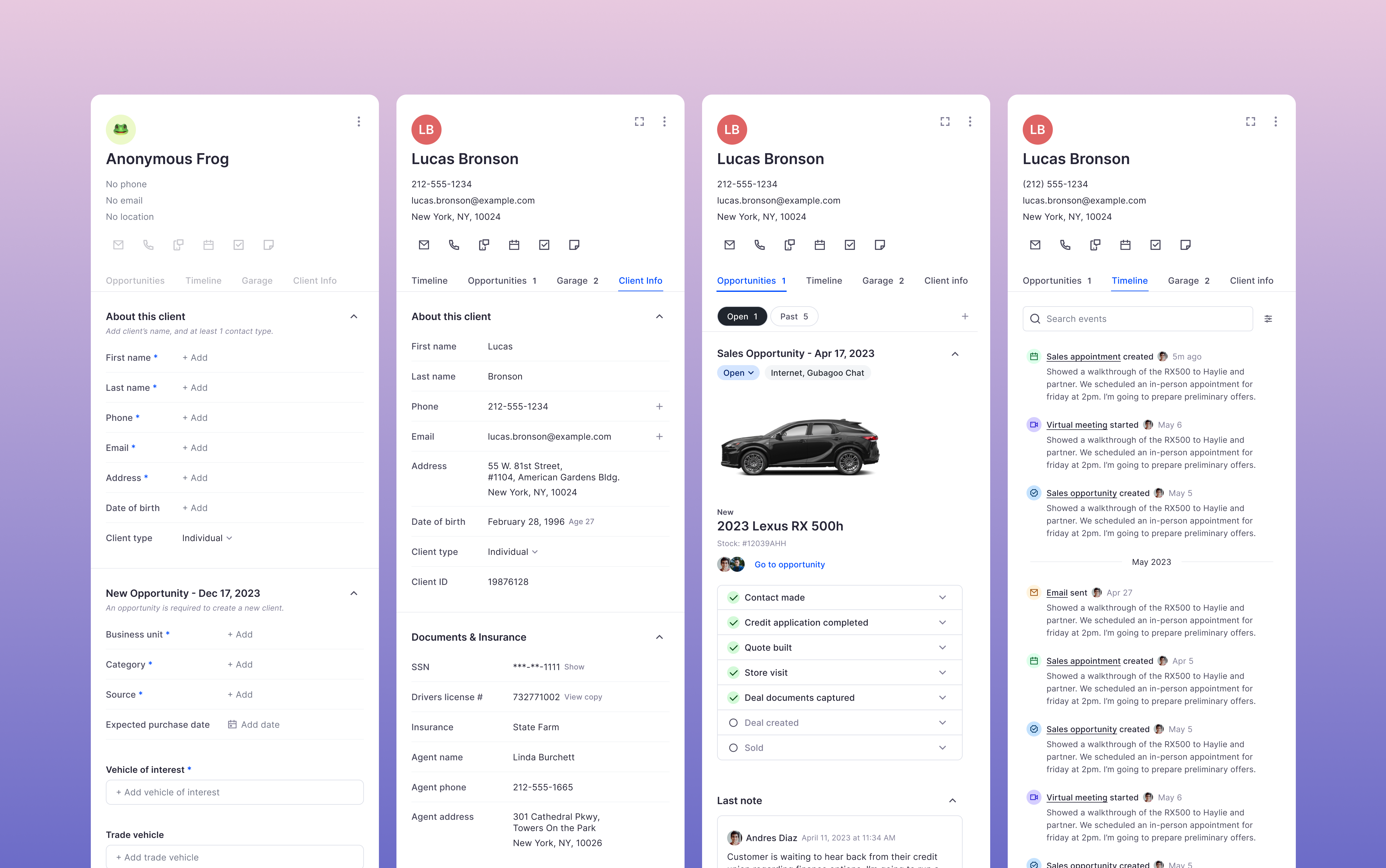
Outcome
Design is still in progress, and development is currently pre-alpha. Stakeholders, executives, and dealerships we’ve shown demos to are very excited about the new platform.
"This is SUPER JUICY…the most innovative thing l've seen in a long time". -Reynolds Executive
"[This] will be the reason we renew our contract with you guys" -Dealer group owner
I will update this study as we get feedback and metrics.
